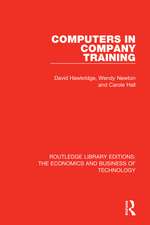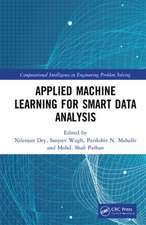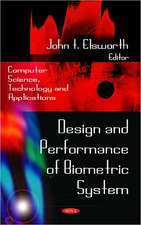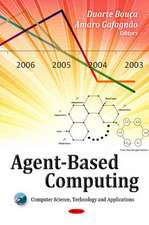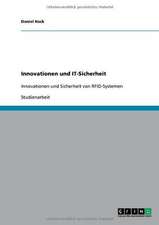AI and Human Thought and Emotion
Autor Sam Freeden Limba Engleză Paperback – 21 ian 2023
Most books on AI are technical and do not consider the humanities. Most books in the humanities treat technology in a similar manner. AI and Human Thought and Emotion, however is about AI, how academics, researchers, scientists, and practitioners came to think about AI the way they do, and how they can think about it afresh with a humanities-based perspective. The book walks a middle line to share insights between the humanities and technology. It starts with philosophy and the history of ideas and goes all the way to usable algorithms.
Central to this work are the concepts of introspection, which is how consciousness is viewed, and consciousness, which is accessible to humans as they reflect on their own experience. The main argument of this book is that AI based on introspection and emotion can produce more human-like AI. To discover the connections among emotion, introspection, and AI, the book travels far from technology into the humanities and then returns with concrete examples of new algorithms. At times philosophical, historical, and technical, this exploration of human emotion and thinking poses questions and provides answers about the future of AI.
| Toate formatele și edițiile | Preț | Express |
|---|---|---|
| Paperback (1) | 247.32 lei 6-8 săpt. | |
| CRC Press – 21 ian 2023 | 247.32 lei 6-8 săpt. | |
| Hardback (1) | 564.39 lei 6-8 săpt. | |
| CRC Press – 20 aug 2019 | 564.39 lei 6-8 săpt. |
Preț: 247.32 lei
Preț vechi: 356.58 lei
-31% Nou
Puncte Express: 371
Preț estimativ în valută:
47.34€ • 51.44$ • 39.79£
47.34€ • 51.44$ • 39.79£
Carte tipărită la comandă
Livrare economică 21 aprilie-05 mai
Preluare comenzi: 021 569.72.76
Specificații
ISBN-13: 9781032475394
ISBN-10: 1032475390
Pagini: 266
Dimensiuni: 156 x 234 x 20 mm
Greutate: 0.37 kg
Ediția:1
Editura: CRC Press
Colecția Auerbach Publications
ISBN-10: 1032475390
Pagini: 266
Dimensiuni: 156 x 234 x 20 mm
Greutate: 0.37 kg
Ediția:1
Editura: CRC Press
Colecția Auerbach Publications
Cuprins
0. Introduction. PART I. Intelligence in Computers, Humans and Societies. 1. Artificial Intelligence as It Stands. 2. Current Critiques of Artificial Intelligence. 3. Human Thinking: Anxiety and Pretence. 4. Prevailing Prejudices Pertaining to Artificial Intelligence. PART II. An Alternative: AI, Subjectivity and Introspection. 5. Central Argument Outline. Main Term: "Anthropic AI." 7. Main Term: "Introspection." 8. Introspection is Ligitimate. 9. Introspection is Likely to Be Profitable. PART III Getting Practical. 10. Details and How to Use Introspection for Artificial Intelligence. 11. Examples. 12. A More Sophisticated Example. 13. Summary, Consequences, Conclusion.
Notă biografică
Sam Freed is a researcher in the COGS (Centre for Cognitive Science) at the University of Sussex. This centre spans departments as diverse as neuroscience and philosophy, psychology, and computer science. Freed’s background includes a career as a technologist starting as a research assistant in computer science at the age of 15 (at the Hebrew University, Jerusalem), work on Lotus 1-2-3 during Ireland’s 1990s boom, and managing international projects in internet security during the .com bubble. His education includes a BA in philosophy and comparative religion, an MA in cognitive science (both from the Hebrew University), and a PhD in informatics (from Sussex). His work centers on the relevance of the humanities to technology and on the historical analysis of the mindset behind current technology.
Descriere
This reference work examines how human thought processes and emotion can be captured by artificial intelligence (AI) algorithms and code. It provides a theoretical framework and demonstrates how code can be generate on the basis of the framework.
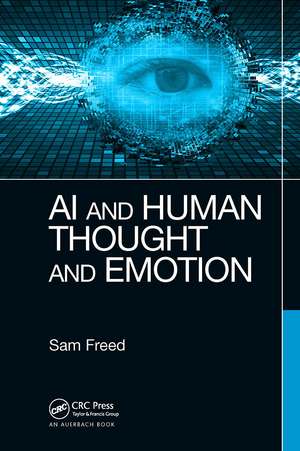

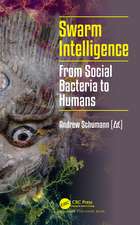
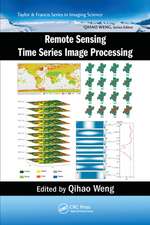

![SAP ERP Financials and FICO Handbook [With CDROM]: Pancreatic Cancer](https://i0.books-express.ro/bt/9780763780807/sap-erp-financials-and-fico-handbook-with-cdrom.jpg)

